We are what we do. We can feel a sense of loss if we are unable to carry on with what we need and want to do. Help is at hand and here are some tips.
In everyday life we set our own expectations of what we should be able to do. However, fluctuating and unpredictable physical fatigue may make this difficult and leave you feeling shattered.
- It is unhelpful to compare yourself to what you were able to do before your diagnosis.
- Cancer and associated treatments will commonly result in some troublesome physical fatigue.
- Fatigue may happen up to and during the time of gaining a diagnosis, during active treatments and beyond for some.
- Fatigue is commonly disruptive to day-to-day lives and routines, but can be managed through gradual changes in what you do.
Your energy levels may fluctuate and be unpredictable at times. Understanding patterns can help you to better manage the limited energy you may have. Try thinking about your energy levels as a personal battery, considering the best ways to store, save and use this in the best way possible. Accepting that our energy may not be what it was and working with what we have, can help us to feel more in control and introduce an element of choice in terms of how we use this.
We recognise that everyone is different
Think of your personal energy battery like a mobile phone battery. For example, we plug in our phone overnight so it charges ready to use the following day. We go to bed in the hope of doing the same to our personal battery. Frequently, however, for a number of reasons our battery does not charge as well as we had hoped. Having an awareness of your charge level can help us to think about what energies available and how best to use this. Prioritising what you do through planning and pacing, can help to make the best use of what is available.
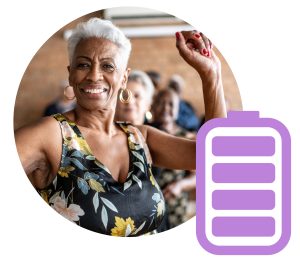
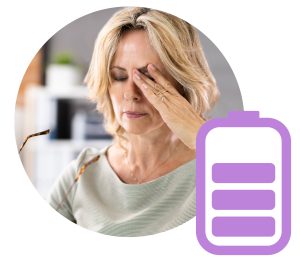
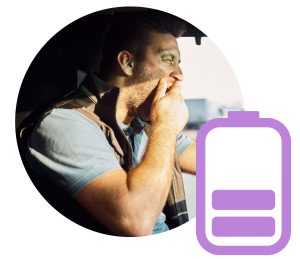
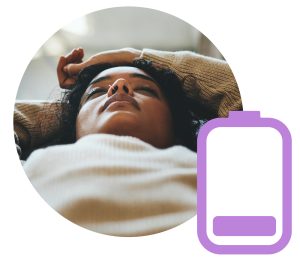
Top Tips
- Imagine your full personal battery charge being = 100%
- On waking, estimate how ‘charged’ you feel.
- Commonly, this will be less than 100%
- Be kind to yourself, having cancer associated treatments and disturbed sleep will all contribute to the reduced charge.
- For now, you need to become smarter about how you will use your limited energies, and explore how to top up your charge throughout the day.
- Identify meaningful restorative activities.
For example, a short nap if night time sleep is not negatively impacted by this. For others they may feel energised by a walk or sitting to read for a while. In fact anything that makes you feel like you have plugged your personal battery in and been recharged somewhat. - Your restorative activity will be personal to you, we are all different.
- Don’t compare yourself to others just find something that you enjoy and that’s right for you and stick with protecting some time for this.
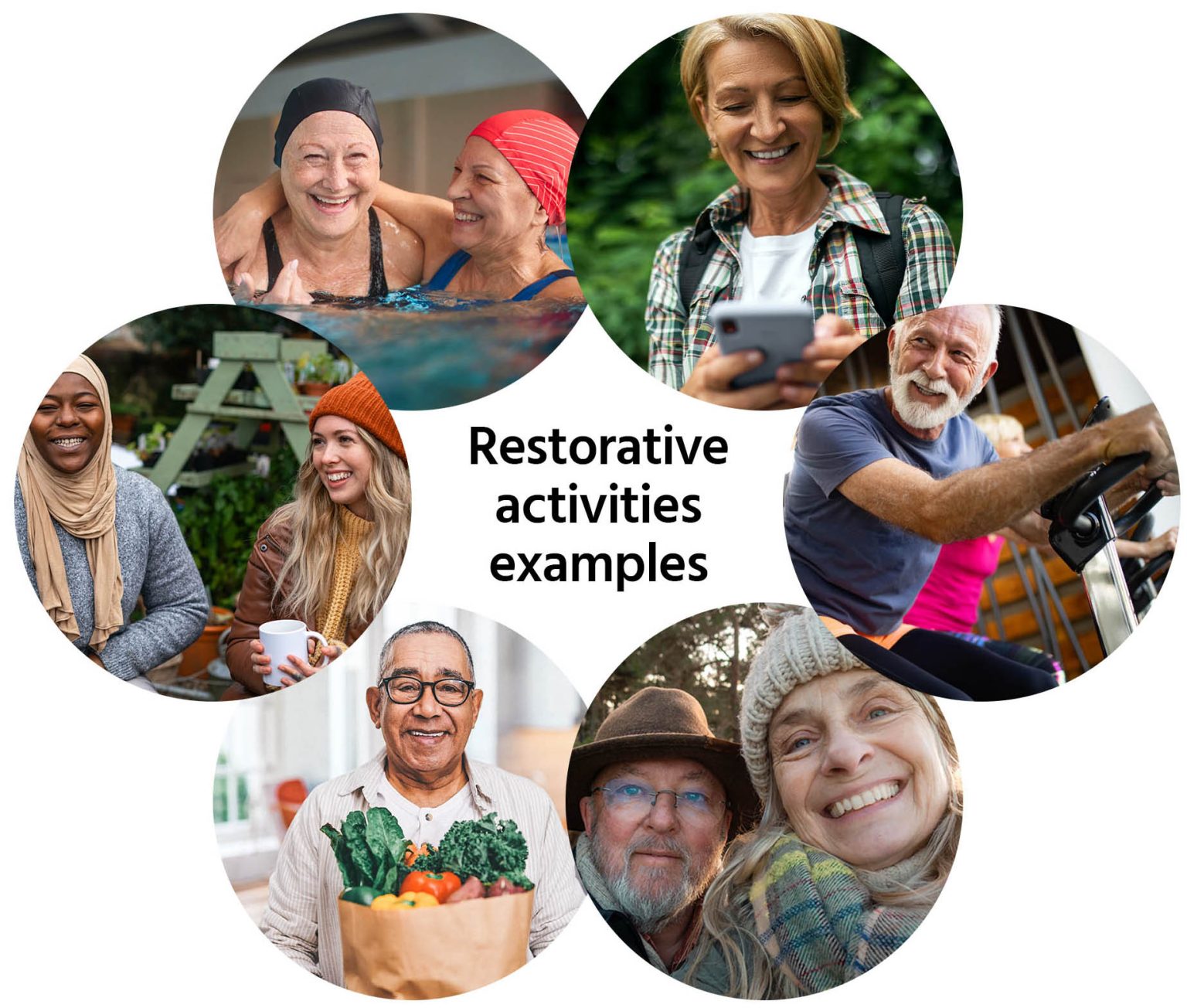
Using your personal energy diary you may learn:
- When your energies are at their best.
- When your energies are at their lowest.
- Which activities drain your charge the most.
- Which activities provide the best charge.
Being aware of these factors can help you to priorities, plan and pace your activities and routines.
If you find this information and resources useful, and would like to explore this in greater depth, a referral to the Bath Centre for Fatigue Services will be helpful.
Prioritising, Planning, and Pacing
Observing the 3 Ps of energy management will help you to feel more in control. It does take practice however and for those who try useful gains can be made in better managing their fatigue.
The 3 Ps are:
Prioritising – Consider:
What has to be done? What would I like to do? What can wait? What can’t wait?
Planning – Consider:
When will I do what I want and need to do? When are my energy levels at their best? What other tasks do I need to do that day?
Pacing – Consider:
Do I really need to spend as much energy on one activity or can I do less and vary what I do over the day? Can I break a big activity into smaller manageable chunks and spread these over the day (or week) and have rests in between? Can I set myself smaller more measurable goals?
Do what you can to keep in touch with your sense of self and congratulate yourself for seemingly small gains. Self-compassion is key.
Remember, use your Personalised Energy Diary to identify those activities that drain your personal battery the most. Consider low energy activities, those that drain but not quite so much. Exploring which activities drain your battery can help you to have a more balanced approach.
Staying active can help
Following your diagnosis, there may be a temptation for your friends and family to do things for you. Participating in many basic day to day activities may help you both physically and mentally.
How people stay active will depend on your abilities, and health needs. Everyone is an individual, and has their own need, interests and motivations.
If you would like to find out more about staying active you can visit our prehab exercise page.
Physical fatigue and exercise
We have a number of videos to help and inspire you to get started with your exercises. Below is the first of these, introducing you to gentle walking.
There are plenty of other videos to help you along the way. Here's a link to them.
